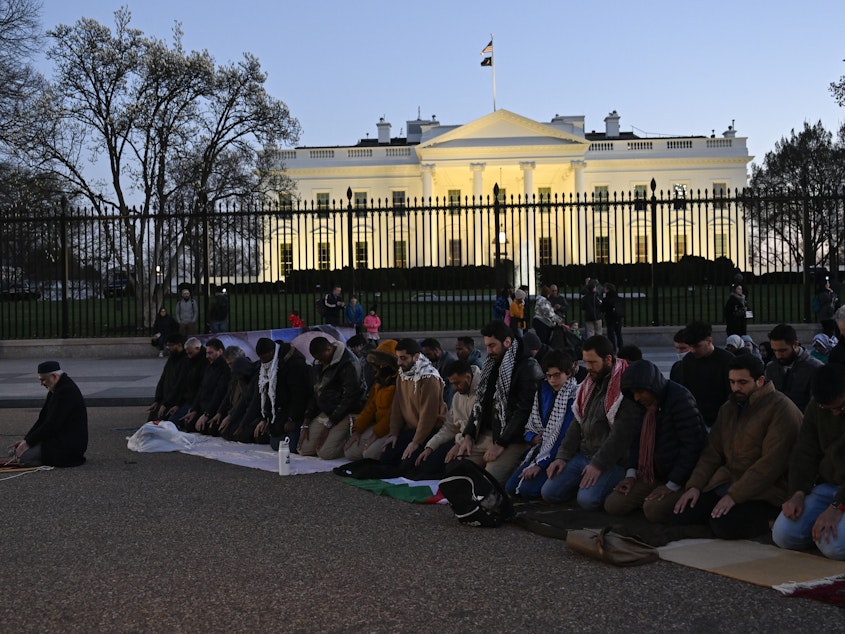The White House is planning a scaled-down iftar dinner to mark Ramadan this year

The White House is planning to host a small, solemn Ramadan iftar dinner this Tuesday evening – a scaled-down version of the traditional celebration given the ongoing war in Gaza, according to two people familiar with the White House's plans. They spoke on the condition of anonymity ahead of any public announcement.
White House officials appear to be trying to hold an event that will both reflect the somber mood in the Muslim community because of the war, and also seem to be trying to curb the possibility of public interruptions or protests.
The result is an intimate dinner of 15 or so people – limited to President Biden, Vice President Harris, national security adviser Jake Sullivan, some Muslim staffers and a handful of outside guests, including doctors who've recently aided patients inside of Gaza.
The White House declined to confirm the details of any iftar dinner. Last week, press secretary Karine Jean-Pierre said the White House was "committed" to hosting some kind of event with the Muslim community but said she didn't have any further details to share.
There's no doubt the war and Biden's foreign policy will be top of mind. The goal of the iftar dinner, according to people familiar with the plans, is to allow guests to have a "substantive" conversation with the president about the situation in Gaza.
Sponsored
The White House has wrestled for months with growing discontent from a subset of Democratic voters over the president's Middle East policies.
During the Michigan primaries in February, there was an organized effort to vote "uncommitted" to pressure the Biden administration to call for a cease-fire. Similar efforts cropped up in primaries that followed around the country.
Last month, when senior administration officials traveled to Chicago — the site of this summer's Democratic convention — one of the meetings had to be canceled because local leaders refused to sit down with White House staff. Some Muslim and Arab-American leaders declined invitations to meet with campaign officials in Michigan in January too.
There's been ongoing debate among Muslim and Arab-American community leaders about the merits of engaging with this White House, after more than 30,000 Palestinians have been killed in Gaza and the United States continues to supply weapons to Israel unconditionally.
Some Muslim leaders insist talking to the president and his team is the best way to push for foreign policy changes.
Sponsored
Still, agreeing to meet with administration officials has become akin to crossing a picket line; Muslims who do can face immense community pressure. There remains internal community pressure on some Muslim invitees to not attend this week's event.
White House iftar celebrations date back to the Clinton administration, though the tradition was interrupted by former President Donald Trump, who didn't hold one during his first year in office, after issuing an executive order banning travel from seven Muslim-majority countries.
In previous years, the Biden administration held larger Eid celebrations, marking the end of Ramadan. That didn't seem appropriate this year, according to people familiar with the plans, and the White House debated how else to mark the Muslim holidays, a source said. There had been discussion of holding a smaller Ramadan iftar with foreign diplomats from Muslim-majority countries; that would have been similar to how Trump marked the holidays in 2018. [Copyright 2024 NPR]



